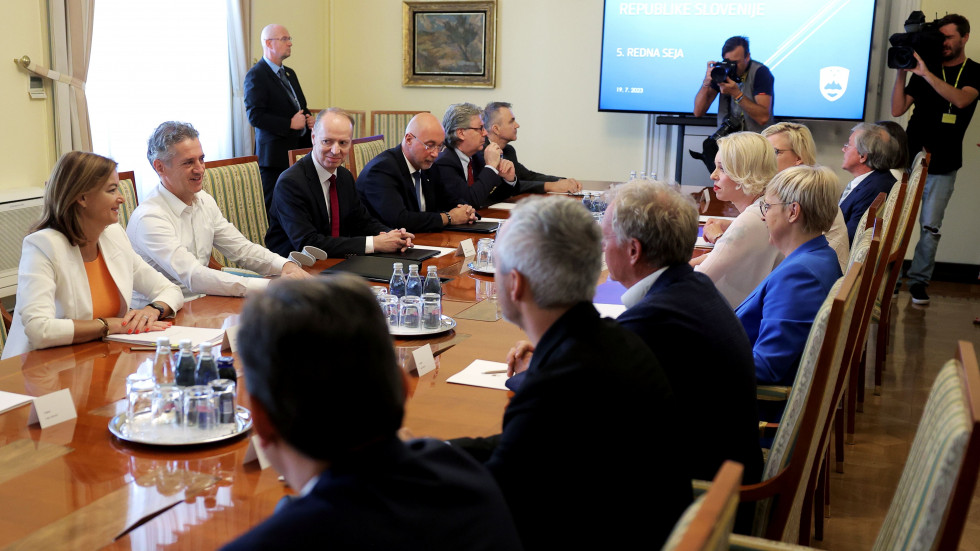National Security Council on Slovenia’s efforts in the UN Security Council

The National Security Council (NSC) held its session in the extended formation | Author Daniel Novakovič, STA
As highlighted by Dr Andrej Benedejčič, State Secretary for National and International Security in the Office of the Prime Minister, the UN Security Council is the key authority responsible for maintaining international peace and security. The NSC became acquainted with the crisis situations on the agenda of the Security Council, which Slovenia will address in 2024 and 2025. "In this regard, the NSC also learned about the future plans for participation of members of the Slovenian Armed Forces and the Police in the international operations and missions," Dr Benedejčič explained.
Slovenia will strive to utilise its non-permanent membership to tackle the issues of climate change, water crises and their effects on peace and security, the issues of food and energy security, the prevention of conflicts, protection of civilians and the most vulnerable groups of citizens in conflicts, enhancement of the role of women and the observance of international law and the provision of accountability. In this light, the NSC supports Slovenia’s endeavours to ensure comprehensive, just and permanent peace in Ukraine in accordance with the recently adopted resolution of the UN General Assembly.
The NSC supports the enhancement of the UN’s cooperation with other international and regional organisations when maintaining international peace and security. Slovenia will pay special attention to the security situation in the Western Balkans, which is on the Security Council’s agenda.
"The Council further advocated for the security awareness of all parties involved in the project of non-permanent membership in the Security Council, as well as suitable counterintelligence protection and provision of information security," Dr Benedejčič concluded. He noted that significant polarisation currently exists within the UN Security Council and sees the disagreement between five permanent members as an opportunity for an enhanced involvement of the non-permanent members. He further explained that UN Secretary General António Guterres also strives for the enhanced role and interaction of the non-permanent members, as they contribute to smoother UN operations.
